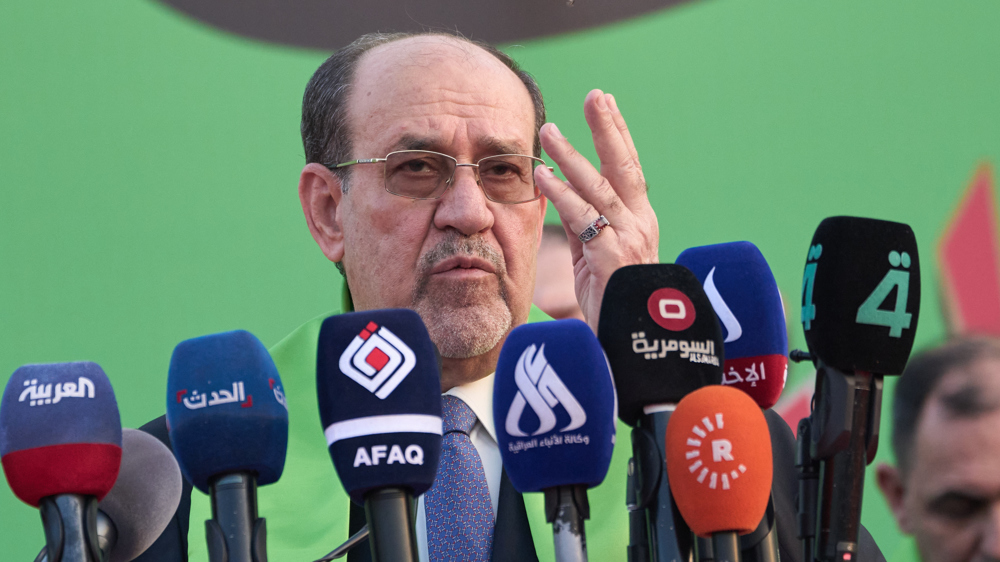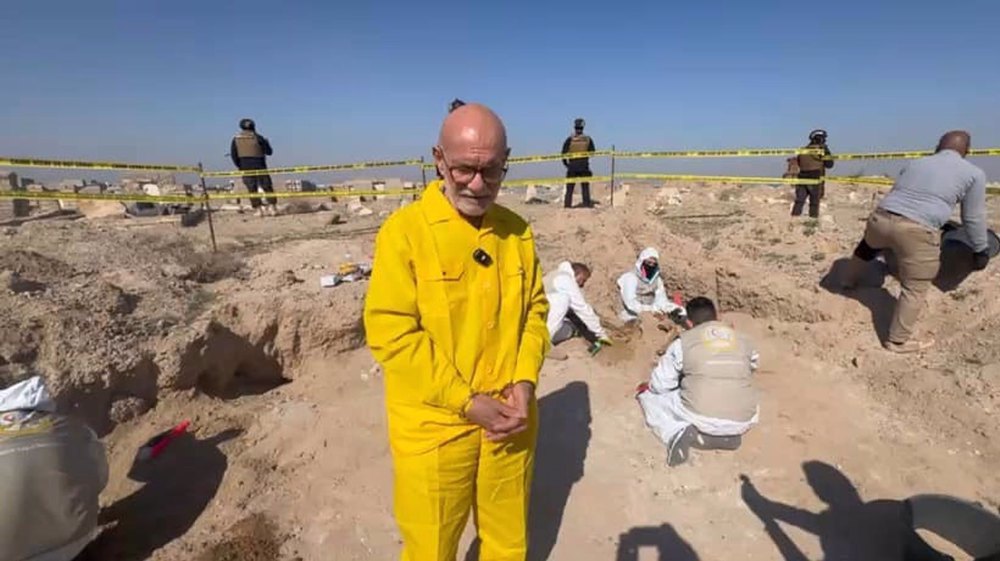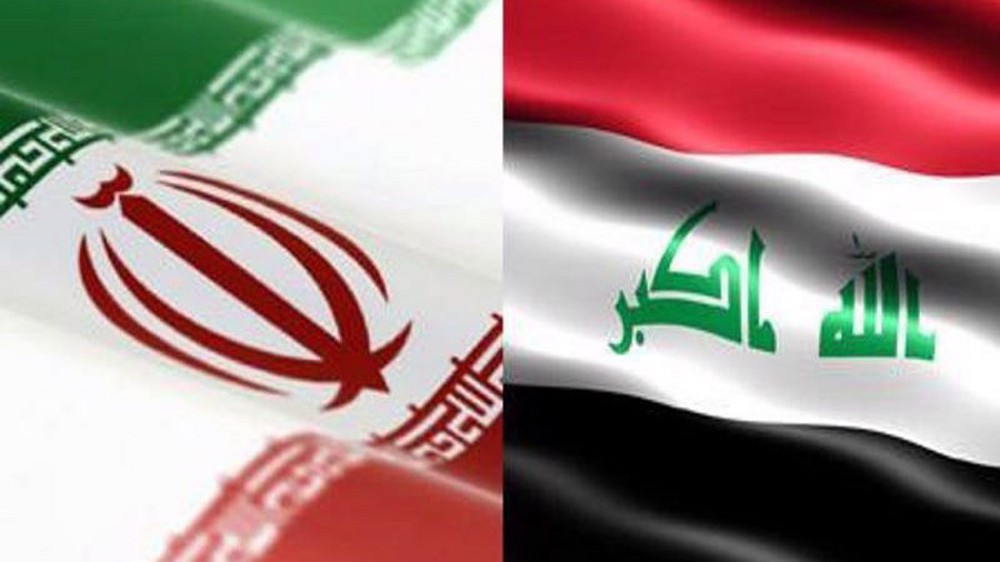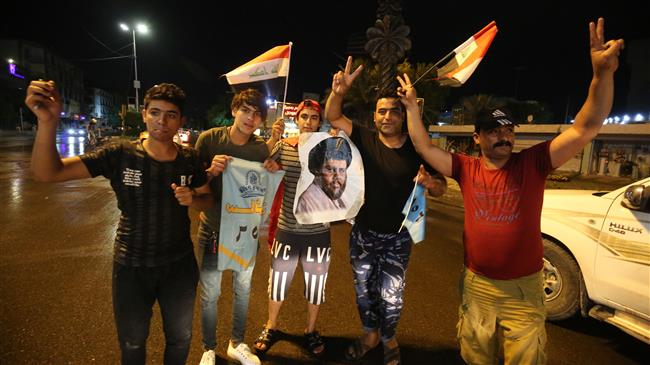Iraqi cleric Sadr rejects any change in anti-US stance
Iraqi cleric Muqtada al-Sadr, whose coalition won the largest number of seats in Iraq's parliamentary elections, has reiterated his anti-US policy, saying there has been no change to the position.
Sadr was asked on Saturday about Washington's indirect contact with his Sairoon (Marching Towards Reform) bloc through some of the alliance's members about the formation of a new Iraqi government.
The cleric responded that he had already addressed the issue in one of his tweets.
"We are a nation whose principles and positions have not changed and will not change," Sadr's official website quoted him as saying.
Iraq's parliamentary elections were held on May 12.
Sadr's Sairoon bloc won 54 out of 329 seats in the Iraqi parliament. The Fatah (Conquest) alliance, led by secretary general of Badr Organization Hadi al-Ameri, and incumbent Prime Minister Haider al-Abadi's Nasr (Victory) coalition finished second and third with 47 and 42 seats, respectively.
Negotiations are underway between Iraqi parties to form the new government.
Erdogan, Sadr speak on phone
Late Friday, Turkish President Recep Tayyip Erdogan congratulated Sadr on his election victory.
During a telephone conversation, Erdogan wished Sadr well on forming the new government and highlighted Ankara's support for Iraq's unity, according to Turkish presidential sources.
Erdogan also demanded an investigation into suspected voting irregularities in Turkmen areas of Iraq's Kirkuk province.
Iraq probes voting irregularities
Separately on Friday, Abadi ordered the creation of a high-powered commission to look into the alleged irregularities in the parliamentary elections.
An official statement said a recent cabinet meeting chaired by the premier had named the Iraqi anti-graft chief as the head of the commission.
The statement further suggested that hackers may have manipulated the election results.
There have been complaints about irregularities at some polling stations linked to a new electronic voting system in Iraq.
Iran’s uneven fight against US-led financial firewall
Iran joins club of countries with 110 advanced cell therapy products
Zelensky seeks 20-year US guarantee to ink Ukraine-Russia peace deal
VIDEO | Press TV's news headlines
Iran says ball in US court to prove seriousness about making deal
Austrian press casts Iranian ties as threats, spotlighting bias and selective freedom
Munich 'circus' excludes Iran’s elected representatives, platforms ‘regime change’ lobbyists
Israeli reservists exploited secret bombing intelligence to bet on Gaza strikes

















 This makes it easy to access the Press TV website
This makes it easy to access the Press TV website